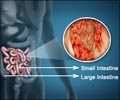There has been some research suggesting that aspirin could delay or stop early-stage cancers coming back, but there's been no randomized trial to give clear proof.

For the study, researchers have assigned a group of patients to take a 300mg daily dose of aspirin, a second group will take 100mg every day and a third group will be given placebo or dummy drugs. Study participants will self-administer tablets over the five-year period and will be actively followed up for another five years.
Dr. Fiona Reddington, Cancer Research UK's head of population research, said, "The trial was potentially game-changing for patients. Aspirin's possible effects on cancer are fascinating and we hope this trial will give us a clear answer on whether or not the drug helps stop some cancers coming back. This trial is especially exciting as cancers that recur are often harder to treat so finding a cheap and effective way to prevent this is potentially game-changing for patients."
Professor Ruth Langley, chief investigator at the Medical Research Council Clinical Trials Unit, said, "The trial had the potential to change the future treatment of common cancers. There's been some interesting research suggesting that aspirin could delay or stop early-stage cancers coming back, but there's been no randomized trial to give clear proof. This trial aims to answer this question once and for all. If we find that aspirin does stop these cancers returning, it could change future treatment - providing a cheap and simple way to help stop cancer coming back and helping more people survive."
Source-AFP
 MEDINDIA
MEDINDIA



 Email
Email









